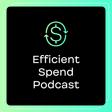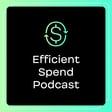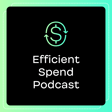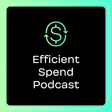
Lessons from Building LiftLab Media Mix Modeling and Experimentation Platform | John Wallace
SUBSCRIBE TO LEARN FROM PAID MARKETING EXPERTS 🔔
The Efficient Spend Podcast helps start-ups turn media spend into revenue. Learn how the world's top marketers manage their media mix to drive growth!
In this episode of The Efficient Spend Podcast, John Wallace, founder of LiftLab, explores how combining media mix modeling with experimentation leads to more reliable marketing decisions. John shares lessons from building attribution systems, why marginal ROAS should be every marketer’s north star, and how to balance model outputs with human instinct. He also unpacks the role of AI in media planning and what marketers often get wrong when testing new channels.
About the Host: Paul is a paid marketing leader with 7+ years of experience optimizing marketing spend at venture-backed startups. He's driven $250M + in revenue through paid media and is passionate about helping startups deploy marketing dollars to drive growth.
About the Guest: John Wallace is a marketing measurement expert and founder with 24 years of experience in econometrics, attribution, and experimentation. He previously founded DataSong and now leads LiftLab, where he helps brands like Sephora, Thrive, and Skims optimize media spend with science-driven insights. John is passionate about building tools that bring clarity, trust, and economic discipline to marketing decisions.
VISIT OUR WEBSITE: https://www.efficientspend.com/
CONNECT WITH PAUL: https://www.linkedin.com/in/paulkovalski/
CONNECT WITH JOHN: https://www.linkedin.com/in/johnwallace-
EPISODE LINKS:
https://liftlab.com/about/
https://www.amazon.com/Market-Response-Models-International-Monographs/dp/0792381585
https://liftlab.com/blog/maximizing-marketing-with-the-ana/
https://www.invoca.com/blog/media-mix-modeling



